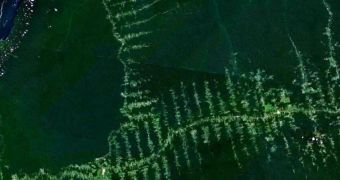Will Turner, an expert at Conservation International, argues in a new study that the reactions humans have to climate change and global warming could have effects that are just as negative as the ones caused by the devastating phenomena themselves. In the research, the expert details how humanity may be affecting the planet in bad ways, even if unintentionally. Together with an international group of leading experts and scientists in the field, Turner published the results of the investigation in the latest issue of the esteemed journal Conservation Letters, AlphaGalileo reports.
“There are numerous studies looking at the impacts of climate change on biodiversity, but very little time has been taken to consider what our responses to climate change might do to the planet,” Turner says of the reasons that drove him and his team to conduct the research. The recently-released document shows that we need to learn how to reduce greenhouse gas emissions, all while discovering methods to adapt to our changing world. The potential impacts that such changes could have on ecosystems around the globe also represented an important goal of the investigation. The research paper is called “Climate change: helping nature survive the human response.”
“If we don't take a look at the whole picture, but instead choose to look only at small parts of it we stand to make poor decisions about how to respond that could do more damage than climate change itself to the planet's biodiversity and the ecosystem services that help to keep us all alive. While the Tsunami in 2004 was not a climate event, many of the responses that it stimulated are comparable with how people will react to extreme weather events – and the damage that the response to the Tsunami did to many of Aceh province's important ecosystems as a result of extraction of timber and other building materials, and poor choices of locations for building, should be a lesson to us all,” he adds.
The expert says that one of the most important things we must remember, and struggle, to do is maintain our world's biodiversity. “Climate change mitigation and adaptation are essential. We have to ensure that these responses do not compromise the biodiversity and ecosystem services upon which societies ultimately depend. We have to reduce emissions, we have to ensure the stability of food supplies jeopardized by climate change, we have to help people survive severe weather events – but we must plan these things so that we don't destroy life-sustaining forests, wetlands, and oceans in the process,” he explains. The research paper acknowledges that such an effort will be monumental, but emphasizes its important in safeguarding our world.

 14 DAY TRIAL //
14 DAY TRIAL //